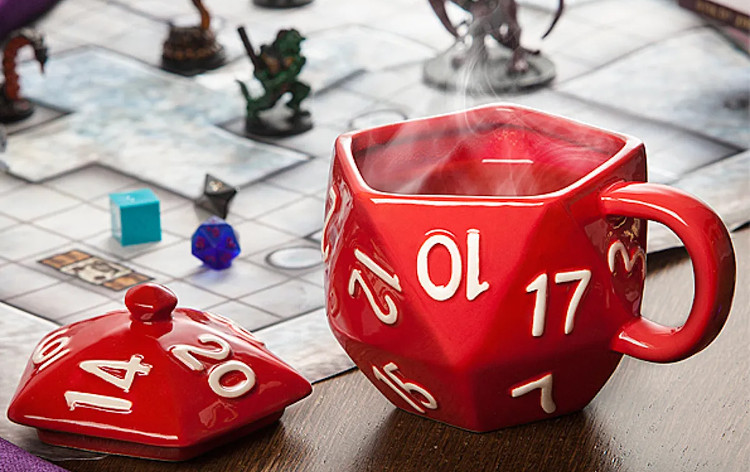Managing a roleplaying game can sometimes feel like an overwhelming multi-tasked nightmare. From prep work like outlining a campaign or balancing encounters to in-game tasks like combat tracking and roleplaying multiple NPCs, there’s no shortage of jobs that a GM needs to juggle. But don’t forget the Syrinscape cues, or the custom map tiles, initiative tents, the copious notes you took for later development. What about that random NPC your players have taken a keen interest in? Wait, is someone ordering food? Where’s that half-orc sorcerer miniature you needed for the next encounter? Oh, right, you promised your players that you’d roll up some new magic items for purchase in the city. Why, yes… Go ahead and make your Day Job rolls. Sure, we can do some improvised roleplay about how much you’re trying to sell your poorly crafted daggers for…
Stop. Just full stop.
Do you really need all that in your game? Of course you don’t. But you want it because it’s cool. Honestly all you need for a roleplaying game are players with character concepts and an impartial storyteller. We add accessories and widgets to our game table because they’re cool, help us immerse ourselves into the narrative, and help us craft unique and memorable experiences. But a single person can get overwhelmed managing all these moving parts at once. Which is why it can sometimes be necessary to delegate certain tasks and responsibilities to your players.
Initiative tracking is a really good example of this. A lot goes into changing over from a roleplay scene into a combat encounter. Typically, a map needs to come down, miniatures need to get laid out, monster statblocks need to be referenced, and initiative order needs to be determined. That’s a lot for one person to handle alone, even if you’re able to address some of those tasks ahead of time. Furthermore, the need to accommodate player impetus as they delay action or change up initiative orders can become cumbersome while also trying to manage all the NPCs in a combat. So delegating initiative keeping to a willing and able player can help free you up to more efficiently manage the combat.
Background music is something else that can easily be delegated to someone else. Wireless technology has progressed to the point where anyone with a space-phone can manage audiotracks in the background, which is one fewer task for you to deal with. Similarly, putting a player in charge of coordinating food, drinks, snacks or other fuels will help lighten your load.
During my Kingmaker campaign, I parceled out tasks that would take only a few moments to accomplish but would demand my complete attention while dealing with them. These were things like determining initiative order, looking up the specific wording of a rule/spell/feat, determining rules minutiae (environmental effects/weather/random item tables), and so forth.
It left me with the ability to better juggle several overlapping narratives, multiple plot hooks, combats, and campaign events more efficiently and with much less waiting around for my players. Overall it left me with a more streamlined game and a more enjoyable experience for everyone at the table.
So learn to let go. Delegate so you can GM more efficiently.
Do you multitask a lot at your table? Do you often get overwhelmed or do you routinely delegate? I want to know about your experiences. Let me know in the comment section below!





I have a relatively easy time multi tasking most tasks at the table, but, when possible, I delegate looking up rules and other tasks that break the flow of the game in favor of keeping things moving. I just got back into GMing Pathfinder after a long hiatus, so it would be a huge hassle to stop every time there is a rule question. Although truthfully I could probably delegate a lot more, it is just hard to give up that control!